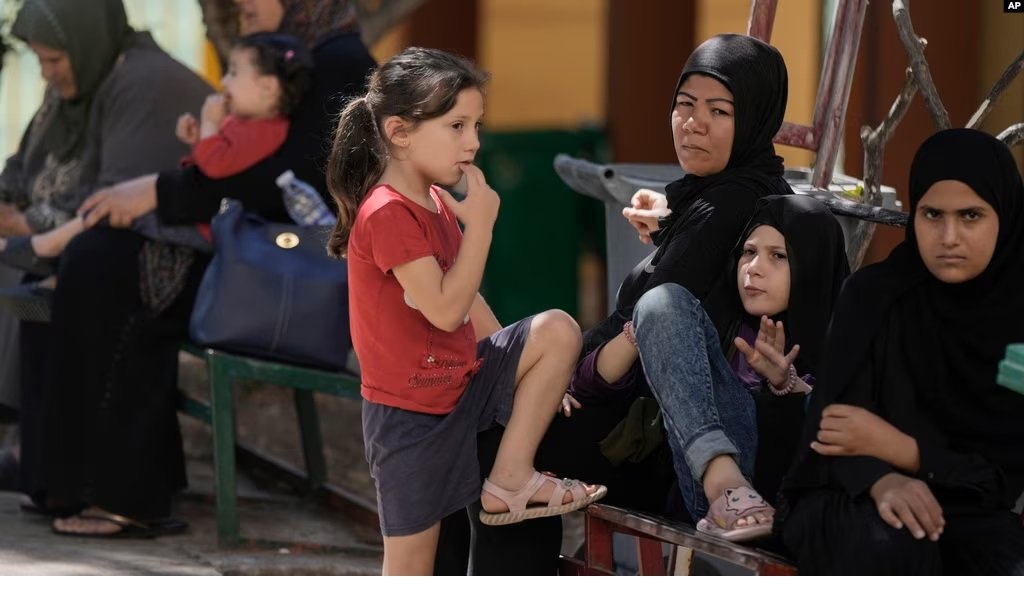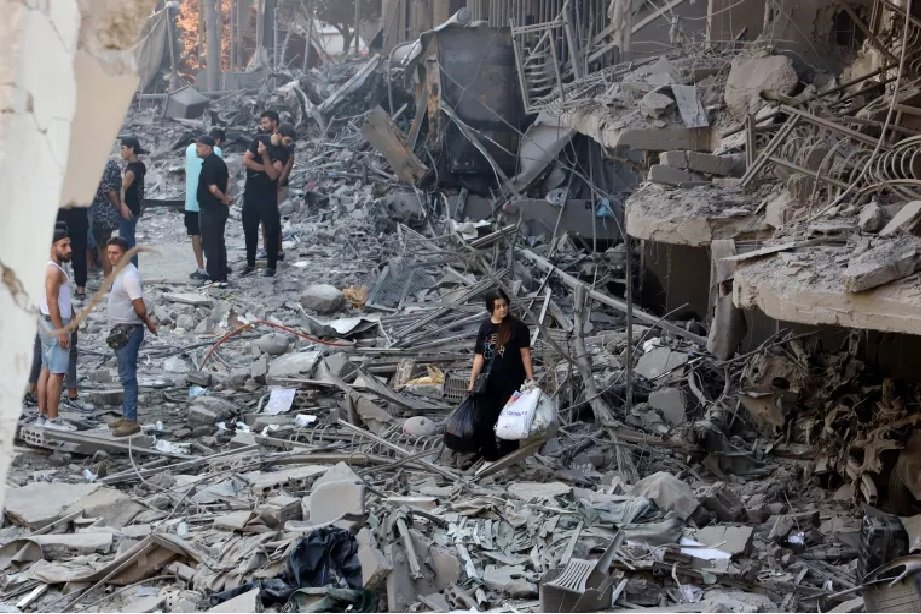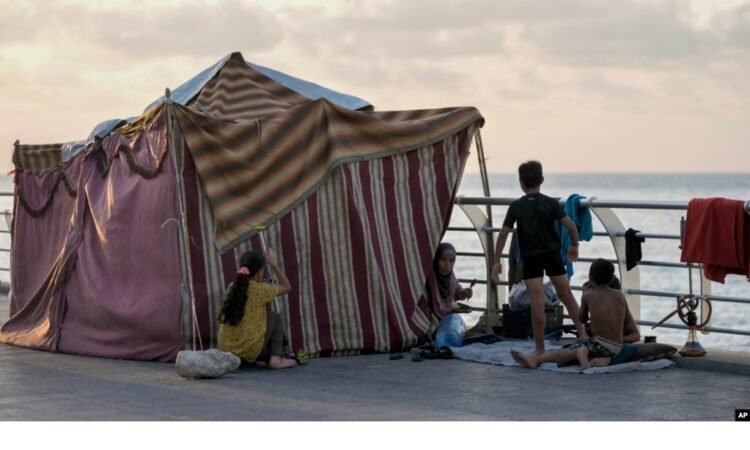Lebanon stands on the brink of a humanitarian catastrophe. The displacement of over 400,000 children and the destruction of essential infrastructure pose a significant threat to the nation’s future.
Lebanon is facing a catastrophic humanitarian crisis as more than 400,000 children have been displaced in the past three weeks due to the ongoing conflict. This warning comes from a top official of the United Nations Children’s Fund (UNICEF), highlighting the risk of a “lost generation” in a country already grappling with multiple crises.
Conflict Escalation and Its Impact on Lebanon
The conflict between Israel and the Hezbollah militant group, based in Lebanon, has escalated into full-scale warfare. Israel has launched a ground invasion following a year of sporadic fire exchanges during its war with Hamas in Gaza. As a result, 1.2 million people have been displaced, most seeking refuge in Beirut and northern regions over the past few weeks.
Ted Chaiban, UNICEF’s deputy executive director for humanitarian actions, recently visited schools that have been transformed into temporary shelters for displaced families. “This war is only three weeks old, yet its impact on children has been devastating,” said Chaiban during an interview in Beirut.
Educational Crisis: Children Deprived of Learning Opportunities
One of the most pressing concerns is the disruption of education for 1.2 million children. Public schools have been rendered inaccessible, damaged, or are being used as shelters for displaced families. Chaiban emphasized the potential long-term effects of this disruption, stating, “The last thing this country needs is the risk of a lost generation.”
While some private schools continue to operate, the public education system has been severely affected, particularly impacting Lebanon’s most vulnerable populations, including Palestinian and Syrian refugees. “We are witnessing a significant risk that hundreds of thousands of children from Lebanese, Syrian, and Palestinian communities may lose their chance for education,” Chaiban warned.

Rising Death Toll and Inhumane Living Conditions
The escalating violence has resulted in the deaths of more than 2,300 people in Lebanon, with nearly 75% of these casualties occurring over the past month, according to Lebanon’s Health Ministry. The conflict has claimed the lives of over 100 children and left more than 800 wounded in just the last three weeks.
In overcrowded shelters, displaced children and families are crammed together, with classrooms often shared by multiple families separated only by plastic sheets. Chaiban described the appalling conditions in some shelters, where 1,000 people share only 12 toilets, many of which are not functional.
Psychological Trauma Among Displaced Children
Displaced children, many of whom have been exposed to the horrors of violence, live in a constant state of fear. The sounds of shelling and gunfire have caused them to become extremely sensitive to loud noises, often cowering at any sudden sound. Chaiban expressed deep concern over their psychological well-being, stating, “These children have endured unimaginable trauma.”
Infrastructure Devastation: Hospitals and Water Systems Under Attack
The conflict has also severely impacted Lebanon’s healthcare system. Over 100 primary healthcare facilities have been forced out of service, and 12 hospitals are no longer fully operational. The destruction has also extended to critical water infrastructure, with 26 water stations damaged in the past three weeks, affecting nearly 350,000 people. UNICEF is actively working with local authorities to restore these vital services.
Call for Ceasefire and Humanitarian Assistance
Chaiban called for the protection of civilian infrastructure and urged for an immediate ceasefire in both Lebanon and Gaza. He stressed that the conflict cannot be resolved through military means alone, saying, “What we must do is make sure that this madness stops.”
In response to the escalating crisis, UNICEF has launched an emergency appeal for $108 million to support Lebanon. However, only 8% of the appeal has been funded, leaving millions of people in desperate need of assistance as the conflict continues to ravage the country.
The Urgent Need for Peace and Support
The international community must act swiftly to provide the necessary humanitarian support and push for a ceasefire to prevent further loss of life and suffering.
*****

Increasing bombardment damaging essential services and putting children in Lebanon at great risk: UNICEF
Children must be protected and the services they rely on must be safeguarded, in line with international law
BEIRUT, 16 October 2024 – Children in Lebanon are at growing risk of health and protection issues – including waterborne diseases like cholera, hepatitis and diarrhea – as the continued bombardment of the country increasingly disrupts and damages essential services that families rely on.
At least 28 water facilities have been damaged by the conflict, affecting water supply to more than 360,000 people, primarily in the south of the country. The true extent of the damage to water systems is likely higher, however, as several affected areas are inaccessible to the technical teams assessing damage, delivering fuel and carrying out essential repairs.
Damage due to bombardment has also been reported at several schools, at least 15 hospitals and 70 primary health care centres and emergency medical services. 6 hospitals are now out of service and a further 5 are partially operating, according to the Lebanese Ministry of Public Health.
“As the frequency and intensity of the bombardments in Lebanon increases, extensive damage to essential infrastructure has been recorded and dozens of medical personnel and essential service personnel have been killed,” said UNICEF Lebanon Representative Edouard Beigbeder. “This is disastrous for every child in Lebanon. In line with international humanitarian law, humanitarian personnel and essential service providers must be protected as they deliver lifesaving support to families and children in precarious conditions and civilian infrastructure must be safeguarded. Children are suffering as the world watches these laws be blatantly disregarded.”
At the same time as access to services becomes more difficult, families’ needs are rising rapidly. Humanitarian agencies estimate that one million people need access to health, water and sanitation services.
In areas like Beirut and Mount Lebanon, communities are struggling to meet the growing demand for water, shelter and essential supplies as displaced families continue to arrive seeking safety and support. Based on government figures, 400,000 children are estimated to have been displaced.
The risks for children are acute. Without access to safe water, children are at risk of contracting waterborne diseases like cholera or diarrhea which, without adequate treatment, can result in dehydration and death. The increased pressure and disruption to health services compounds these risks.
Other diseases are at risk of spreading among displaced families, especially in crowded areas without access to hygiene supplies and sanitation services. UNICEF has already received reports of scabies and lice among children at shelters and is concerned about the risk of respiratory infections spreading in coming weeks as the weather gets colder and wetter. Thousands of people remain on the streets of Lebanon without adequate shelter, bedding or clothing.
The massive surge in displacement and the disruption to services also puts children at risk of protection issues, including being separated from their families. Since 8 October 2023, UNICEF and partners have identified 67 unaccompanied and separated children and have since reunited 65 of these children with their families. Being out of school also puts children at increased risk of injury, abuse or child labour.
UNICEF calls for all parties to protect children from harm and afford them the special protection to which they are entitled, in accordance with their obligations under international humanitarian and human rights law.
“Above all else, the children of Lebanon need a ceasefire,” said Beigbeder. “This is the only way to protect them and ensure the aid they need can be safely delivered at scale.”
(India CSR)







